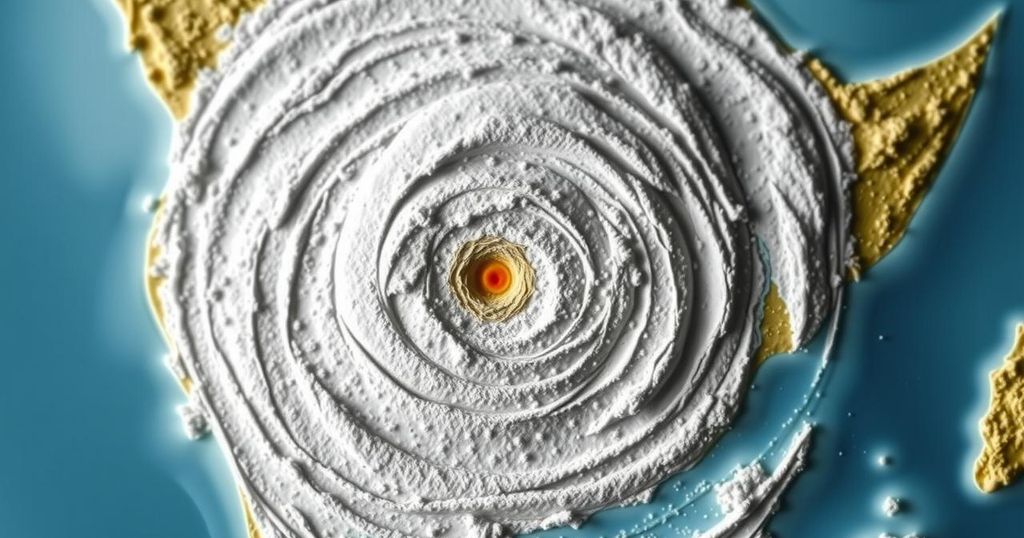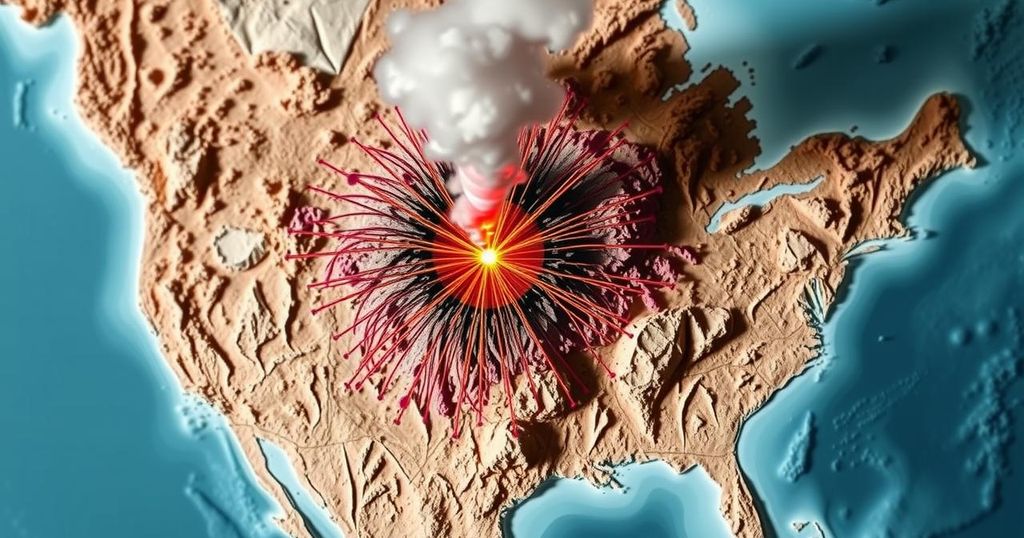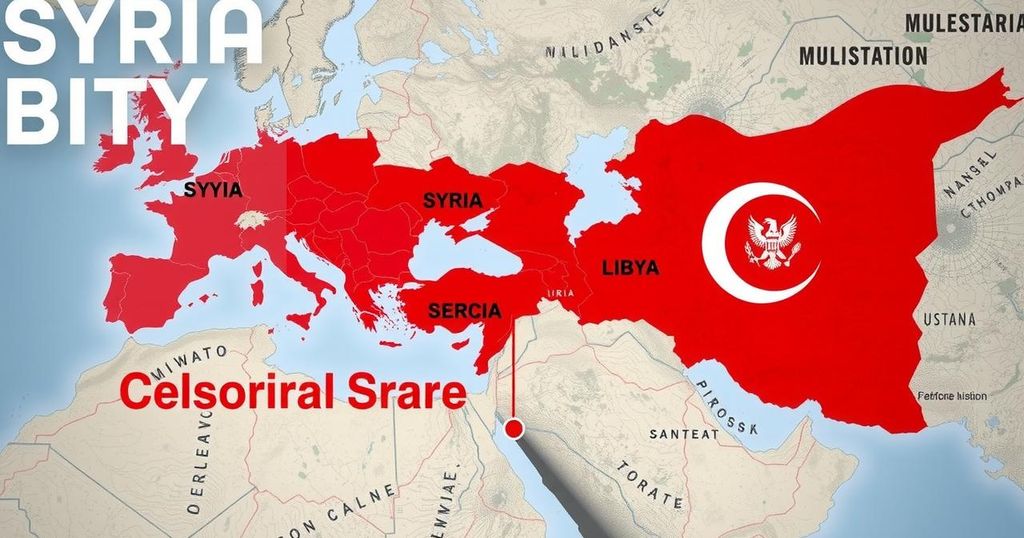World news
AFRICA, AND EMERGENCY OPERATIONS CENTRE, DEPARTMENT OF DISASTER MANAGEMENT AFFAIRS, DISASTER MANAGEMENT, EMERGENCY RESPONSE, FLOODING, HUMANITARIAN AND EMERGENCY OPERATIONS CENTRE, MALAWI, MAYO, METEOROLOGICAL SERVICE, MOZAMBICAN, MOZAMBICAN TETE PROVINCE, MOZAMBIQUE, NATURAL DISASTER, NATURAL DISASTERS, PEMBA, SADC
Jamal Abdullah
0 Comments
Tropical Cyclone Chido: Impact and Emergency Response as of December 2024
Tropical Cyclone Chido has significantly impacted Southern Africa, affecting over 174,000 in Mozambique, 34,000 in Malawi, and 64,000 in the Comoros. The cyclone has weakened to a depression after landfall, with emergency teams deployed for assessments and urgent assistance. Fatalities and extensive damage to infrastructure have been reported, necessitating immediate humanitarian response efforts.
Tropical Cyclone Chido has caused widespread devastation across Southern Africa, affecting over 174,000 individuals in Mozambique, 34,000 in Malawi, and 64,000 in the Comoros, with thousands of homes destroyed. As of December 17, 2024, the cyclone has diminished to a depression as it re-enters Mozambique after impacting Malawi. Emergency response teams have been deployed, with ongoing assessments to address the urgent needs in the most severely affected regions.
The cyclone reached its peak on December 15, making landfall in Mozambique’s Cabo Delgado Province with winds reaching approximately 260 km/h and heavy rainfall causing significant damage. Initial reports indicate 34 fatalities, 319 injuries, and extensive damage to infrastructure, including 35,000 homes, multiple schools, and health facilities. As the situation evolves, updates continue from the Southern African Development Community (SADC) Humanitarian and Emergency Operations Centre.
While damage is reportedly less severe than anticipated, regions such as Anjouan and Mohéli in the Comoros experienced notable impacts, including agricultural damage affecting approximately 45% of crops. In Mayotte, the cyclone brought unprecedented destruction, resulting in 21 fatalities and the displacement of 100,000 individuals. Extensive infrastructural damage has compromised essential services, including access to water and electricity. Reports indicate inaccessible roads and mudslides that further complicate humanitarian efforts.
Meteorological authorities in Zimbabwe have warned of further inclement weather due to Chido’s remnants, with expected heavy rainfall across several regions, including parts of the Democratic Republic of the Congo and Angola. Relevant communities have been advised to remain vigilant against potential flash floods and landslides. The cyclone’s historic severity raises concerns about the preparedness of the impacted areas, particularly with infrastructure and disaster response capabilities suffering under the storm’s aftermath.
Tropical Cyclone Chido formed in the southeastern Indian Ocean Basin and progressed through various stages of intensity, impacting multiple nations in Southern Africa when it made landfall. The cyclone’s effects have been particularly pronounced in Mozambique, Malawi, and the Comoros, leading to significant humanitarian challenges. The report highlights the devastation caused by the cyclone as well as the response efforts by disaster management agencies and local authorities.
In summary, Tropical Cyclone Chido has wrought significant humanitarian challenges across Southern Africa, primarily affecting Mozambique, Malawi, and the Comoros. With over 174,000 individuals affected, urgent assistance is paramount, even as the cyclone weakens. The ongoing assessments and response efforts are crucial to address the needs of the most vulnerable populations and restore normalcy to the affected regions.
Original Source: www.unocha.org




Post Comment